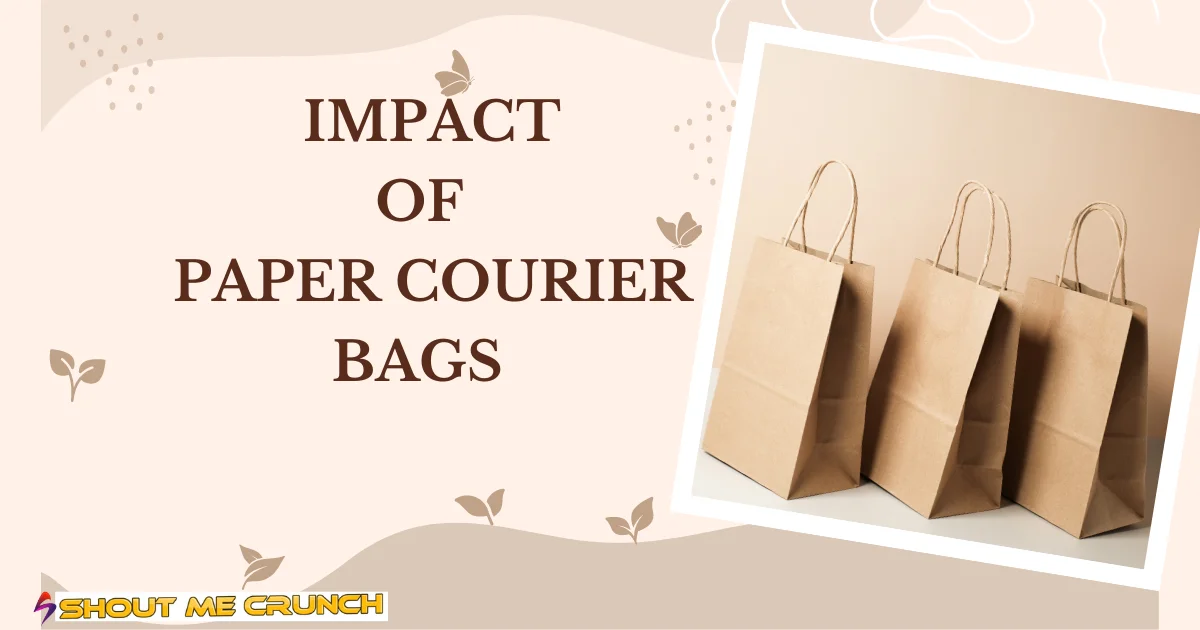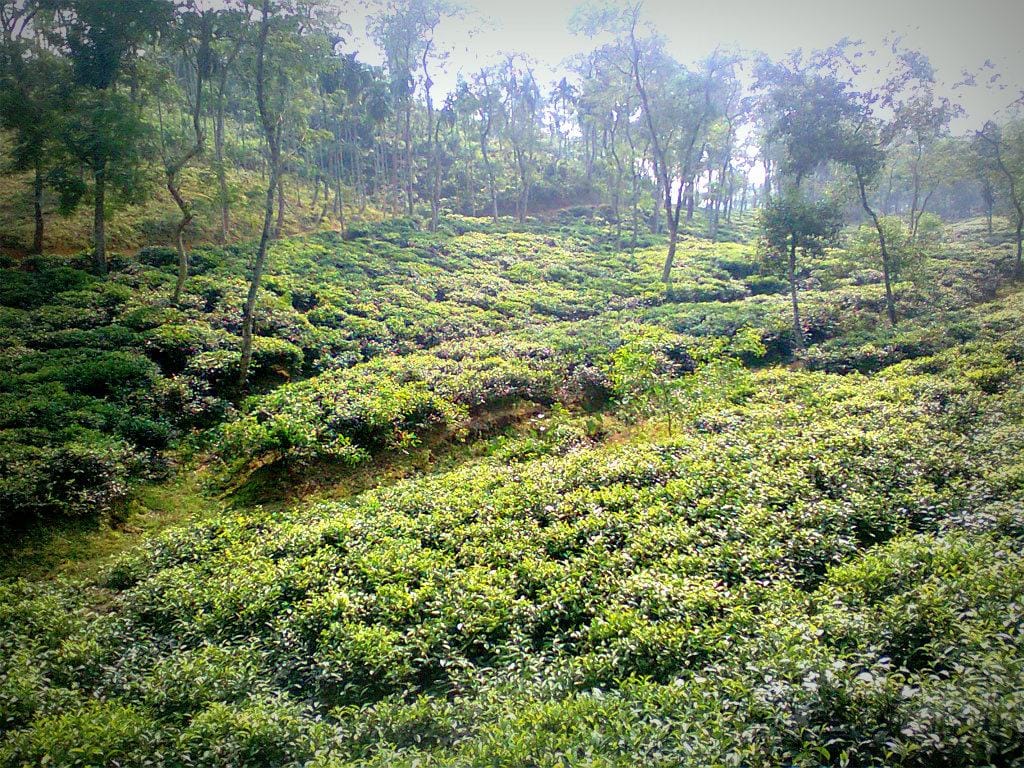In today’s eco-conscious world, both consumers and businesses are becoming more aware of the environmental impact of their choices. Using paper in couriers is enormous. Paper courier bags are one of the packaging options gaining popularity due to their supposed ecological friendliness. Paper is best for any packaging. In this article, we will discuss the environmental impact of these bags, manufacturing methods, recyclability, and overall sustainability.
How Does Paper Bags Affect the Environment?
The environmental impact of paper bags is a complex problem with both benefits and drawbacks. While paper decomposes quickly and appears to be a greener option, its manufacture presents environmental issues. Paper is a common object that every person uses. Paper bags are manufactured by logging trees, which can contribute to deforestation if not managed sustainably.
Because the main source of the paper is a tree. Sustainable forestry methods are critical to replenishing forests and preserving biodiversity. Paper manufacturing is also water- and energy-demanding, and the chemicals used can harm waterways. Though paper is very important and reusable, it destroys our diversity. Plus, paper bags are biodegradable and compostable, unlike plastic bags. It can remain in landfills for generations.

Furthermore, paper bags can be recycled, reducing the demand for virgin materials. It is better than the use of plastic. Thus, paper bags’ environmental impact depends on ethical forestry operations, proper recycling, and reducing single-use habits. You have to be aware of using paper.
An Eco-Impact of Paper Bags
Deforestation Concerns
Ecosystem Loss: Deforestation for paper production harms ecosystems. Furthermore, it endangers wildlife and indigenous cultures. People also need help with deforesting. It also reduces the planet’s ability to absorb CO2, hastening climate change.
Pollution during production
Paper manufacturing employs a range of chemicals. That provides chlorine, which can poison streams and kill aquatic life. It is dangerous to protect biodiversity.
Usage and Disposal Durability Issues: While paper courier bags are biodegradable, they may not withstand rigorous handling during transit, resulting in damage and waste. Some papers are not rotten with soil. Improper disposal can also result in litter and pose a risk to wildlife.
Production of Paper Courier Bags
Paper courier bags are frequently made of kraft paper, which is made from wood pulp harvested from sustainably managed forests. That is easily useable. The production process consists of harvesting trees, converting the wood into pulp, and eventually processing it into paper. Paper bags, unlike plastic bags, are created from a renewable resource, trees. After finishing the cutting process of the tree, the paper will be ready to use. However, concerns have been raised about deforestation and its effects on biodiversity.
Recyclability of paper courier bags
Paper courier bags may be effectively recycled, like plastic bags, which can take hundreds of years to degrade in landfills. One of its key advantages is that paper is more reusable than plastic. Ecycling paper bags saves resources and minimizes the demand for new materials. Furthermore, paper bag recycling causes less pollution than plastic bag recycling. e have to reduce the use of plastic.

Biodegradation and Decomposition
Paper courier bags are recyclable and biodegradable. When disposed of in landfills, paper bags deteriorate over time, contributing to natural decomposition. t protects our biodiversity from pollution. His contrasts firmly with plastic bags, which can persist in the environment for millennia, endangering species and ecosystems. However, appropriate waste management practices are essential to ensure that paper bags disintegrate correctly. The paper is easily biodegradable and reusable.
Sustainability Considerations
When looking at how paper courier bags affect the earth, it is important to consider how long the packaging materials will last. Paper reusability protects our environment. Paper bags are reusable and break down naturally. That is a good thing. However, some people need more energy and resources available. Exposing disposable bags could add to carbon emissions. It Depends on the distance and method of transport used.
Why Are Paper Bags Better for the Environment?
In terms of environmental impact, paper bags outperform plastic bags. First and foremost, reusability is an important consideration. At the same time, both can be reused a few times. Paper bags are more durable and endure longer uses before being replaced. It is also easy to carry anywhere. Second, biodegradability is a significant distinction.
Paper decomposes naturally within a few months, transforming into organic stuff. That is used as chemical pesticides. Plastic bags, on the other hand, can take hundreds or even thousands of years to degrade, polluting landfills and endangering wildlife. That’s dangerous for the environment and creates pollution.

Finally, considering sustainability, paper is made from renewable resources such as trees. Although tree cutting is a worry, sustainable forestry measures can help alleviate it. Paper bags require less energy to produce than plastic bags. It helps to grow the biodiversity. However, it is crucial to realize that paper production needs water and may contain chemicals. Overall, paper bags have a significant advantage in biodegradability and reusability. That makes a better alternative for trash management. Because of this, papers are more useful.
Does Paper Cause Pollution?
Yes, paper manufacture and disposal cause pollution in a variety of ways. Paper mills are a major cause of industrial pollution, spewing toxic chemicals such as chlorine bleach into waterways. Though paper is useful, sometimes it causes pollution. This affects aquatic ecosystems and may be harmful to fish and other species. Paper production is also a water-intensive operation, which puts a burden on freshwater supplies. Paper has an impact on the environment even after it has been used.
But paper is better than plastic. Landfills overflow with paper waste, which takes up valuable space and emits methane, a potent greenhouse gas, as it degrades. But pollution does not exceed the limit. While paper is biodegradable, pigments and dyes used in printing can contaminate soil and water if not properly discarded. As a result, the entire lifecycle of paper, from manufacturing to disposal, can have a detrimental environmental impact. If you use it with limitations, the pollution will be reduced.
Conclusion
Ultimately, paper courier bags online are better for the world than plastic bags. The comparison comes when talking about packing. Using paper reduces air pollution compared to plastic waste. It is important to deal with sustainability in various ways, such as responsible sourcing, effective recycling methods, and lowering carbon emissions by making smart choices and creating creative solutions. We can lower the damage that packaging materials do to the earth and help make the future more sustainable.
FAQs
Q1: Are paper courier bags genuinely eco-friendly?
Yes, paper courier bags are biodegradable. However, their production leads to deforestation and pollution, making them less environmentally friendly than they appear.
Q2. Can paper courier bags be recycled easily?
Paper is recyclable. However, the recycling process consumes energy and water and may produce lower-quality recovered paper due to contamination.
Q3: Are there any alternatives to paper courier bags?
Reusable cloth bags and biodegradable/compostable plastics are eco-friendly options.
Q4: How can individuals help lessen the environmental impact of packaging?
Individuals may decrease packaging, adopt reusable solutions, and support firms that prioritize sustainability.
Q5. How do corporations help to address packaging-related environmental concerns?
Businesses can reduce their environmental impact by investing in sustainable packaging solutions and part in recycling initiatives.


